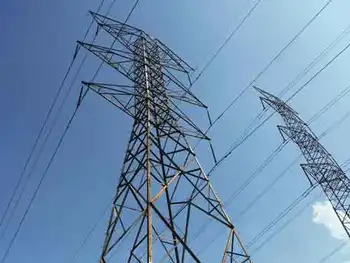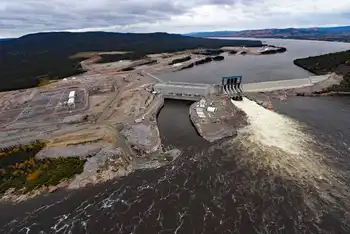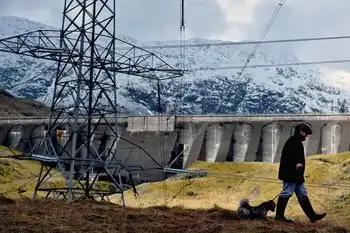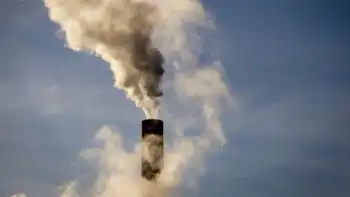France Demonstrates the Role of Nuclear Power Plants
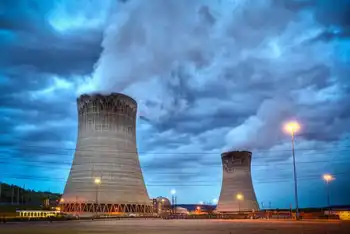
NFPA 70e Training - Arc Flash
Our customized live online or in‑person group training can be delivered to your staff at your location.

- Live Online
- 6 hours Instructor-led
- Group Training Available
France Nuclear Power Strategy illustrates a low-carbon, reliable baseload complementing renewables in the energy transition, enhancing grid reliability, energy security, and emissions reduction, offering actionable lessons for Germany on infrastructure, policy, and public acceptance.
Key Points
France's nuclear strategy is a low-carbon baseload model supporting renewables, grid reliability, and energy security.
✅ Stable low-carbon baseload complements intermittent renewables
✅ Enhances grid reliability and national energy security
✅ Requires long-term investment, safety, and waste management
In recent months, France has showcased the critical role that nuclear power plants can play in an energy transition, offering valuable lessons for Germany and other countries grappling with their own energy challenges. As Europe continues to navigate its path towards a sustainable and reliable energy system, France's experience with nuclear energy underscores its potential benefits and the complexities involved, including outage risks in France that operators must manage effectively.
France, a long-time proponent of nuclear energy, generates about 70% of its electricity from nuclear power, making it one of the most nuclear-dependent countries in the world. This high reliance on nuclear energy has allowed France to maintain a stable and low-carbon electricity supply, which is increasingly significant as nations aim to reduce greenhouse gas emissions, even as Europe's nuclear capacity declines in several markets, and combat climate change.
Recent events in France have highlighted several key aspects of nuclear power's role in energy transition:
-
Reliability and Stability: During periods of high renewable energy generation or extreme weather events, nuclear power plants have proven to be a stable and reliable source of electricity. Unlike solar and wind power, which are intermittent and depend on weather conditions, nuclear plants provide a consistent and continuous supply of power. This stability is crucial for maintaining grid reliability and ensuring that energy demand is met even when renewable sources are not producing electricity.
-
Low Carbon Footprint: France’s commitment to nuclear energy has significantly contributed to its low carbon emissions. By relying heavily on nuclear power, France has managed to reduce its greenhouse gas emissions substantially compared to many other countries. This achievement is particularly relevant as Europe strives to meet ambitious climate targets, with debates over a nuclear option in Germany highlighting climate trade-offs, and reduce overall carbon footprints. The low emissions associated with nuclear power make it an important tool for achieving climate goals and transitioning away from fossil fuels.
-
Energy Security: Nuclear power has played a vital role in France's energy security. The country’s extensive network of nuclear power plants ensures a stable and secure supply of electricity, reducing its dependency on imported energy sources. This energy security is particularly important in the context of global energy market fluctuations and geopolitical uncertainties. France’s experience demonstrates how nuclear energy can contribute to a nation’s energy independence and resilience.
-
Economic Benefits: The nuclear industry in France also provides significant economic benefits. It supports thousands of jobs in construction, operation, and maintenance of power plants, as well as in the supply chain for nuclear fuel and waste management. Additionally, the stable and relatively low cost of nuclear-generated electricity can contribute to lower energy prices for consumers and businesses, enhancing economic stability.
Germany, in contrast, has been moving away from nuclear energy, particularly following the Fukushima disaster in 2011. The country has committed to phasing out its nuclear reactors by 2022 and focusing on expanding renewable energy sources such as wind and solar power. While Germany's renewable energy transition has made significant strides, it has also faced challenges related to grid stability, as Germany's energy balancing act illustrates for policymakers, energy storage, and maintaining reliable power supplies during periods of low renewable generation.
France’s experience with nuclear energy offers several lessons for Germany and other nations considering their own energy strategies:
-
Balanced Energy Mix: A diverse energy mix that includes nuclear power alongside renewable sources can help ensure a stable and reliable electricity supply, as ongoing discussions about a nuclear resurgence in Germany emphasize for policymakers today. While renewable energy is essential for reducing carbon emissions, it can be intermittent and may require backup from other sources to maintain grid reliability. Nuclear power can complement renewable energy by providing a steady and consistent supply of electricity.
-
Investment in Infrastructure: To maximize the benefits of nuclear energy, investment in infrastructure is crucial. This includes not only the construction and maintenance of power plants but also the development of waste management systems and safety protocols. France’s experience demonstrates the importance of long-term planning and investment to ensure the safe and effective use of nuclear technology.
-
Public Perception and Policy: Public perception of nuclear energy can significantly impact its adoption and deployment, and ongoing Franco-German nuclear disputes show how politics shape outcomes across borders. Transparent communication, rigorous safety standards, and effective waste management are essential for addressing public concerns and building trust in nuclear technology. France’s successful use of nuclear power is partly due to its emphasis on safety and regulatory compliance.
In conclusion, France's experience with nuclear power provides valuable insights into the role that this technology can play in an energy transition. By offering a stable, low-carbon, and reliable source of electricity, nuclear power complements renewable energy sources and supports overall energy security. As Germany and other countries navigate their energy transitions, France's example underscores the importance of a balanced energy mix, robust infrastructure, and effective public engagement in harnessing the benefits of nuclear power while addressing associated challenges, with industry voices such as Eon boss on nuclear debate underscoring the sensitivity of cross-border critiques.





